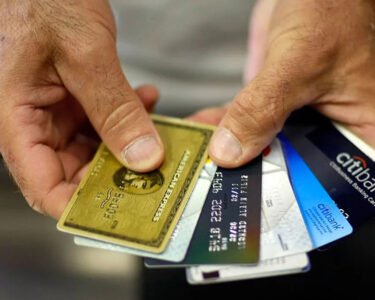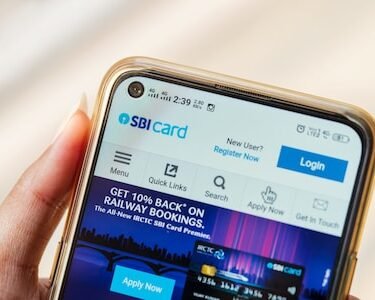Editors’ note: Due to the sensitive financial and personal matters discussed in this story, the author’s real name has been changed to protect their identity.
It feels like every week we hear news of a new data breach. And while they sound scary, they’re also easy to ignore — until it happens to you.
I’m a personal finance writer who frequently reports on the importance of protecting your financial data. But when hackers tried to open a bank account in my husband’s name and we learned my information was leaked on the dark web in the March AT&T data breach, I knew it was time to get serious about protecting our sensitive information.
Identity theft statistics are alarming. In 2023 alone, there were more than 1 million cases of identity theft reported to the FTC’s IdentityTheft.gov website. The Federal Bureau of Investigation also reported in 2021 that financial losses from identity theft reached $16.4 billion.
There are many ways scammers can steal your identity and wreck your financial wellbeing. Identity thieves with enough information about you (your name, Social Security Number and bank account information) can get credit cards or loans in your name, impersonate you and withdraw money from your accounts and even file a tax return and steal your refund from the IRS.
I was lucky to have identity theft protection through Identity Guard, which alerted me before the AT&T breach was public, so I had time to take steps to protect my family. Even now, I’m writing this article using a fake name to prevent hackers from finding my personal information and trying to use it against me.
If you don’t already have identity theft protection, my story might change your mind.
The first warning signs
The first few years my husband and I used Identity Guard were pretty uneventful. The service notified us each time we opened a new credit card or applied for a loan, but no red flags popped up.
But early this year, we started receiving notifications about unauthorized activity. Identity Guard notified my husband that someone had tried and failed to open a credit card account with KeyBank under his name. My husband called Identity Guard and hopped on a three-way call with the bank to find out what happened.

Screenshot by Sally Jackson/CNET
We didn’t learn much, but the bank told us the identity thief applied for the credit card using my husband’s real Social Security Number and potentially the wrong address or name. The bank and Identity Guard couldn’t confirm for sure, but we found all of it disconcerting.
Then, a few weeks later, Identity Guard emailed to tell me that my Social Security Number was found on the dark web due to AT&T’s latest data breach. We knew then we needed to take action to protect ourselves even further.

Keep your personal and financial data secure
What happened during the AT&T data breach?
The AT&T data breach impacted 7.6 million current AT&T account holders and approximately 65.4 million former account holders, AT&T said in a news release. I personally fell into the latter, having switched my internet service away from AT&T several years ago.
Before the data breach was announced publicly, Identity Guard alerted me that my information was found on the dark web as a result of the AT&T breach. I later received a letter from AT&T, too.
Although AT&T said it would provide credit monitoring at the company’s expense to all impacted customers, as a personal finance writer, I knew credit monitoring wouldn’t be enough to protect my data now that it has leaked.
Credit monitoring lets you know if someone opens an account in your name after it happens. With our personal data already in the hands of identity thieves, that wasn’t a risk I was willing to take.
Since the March data breach, AT&T has also created a new resource page for customers, the company told CNET in an email. The webpage provides tips on how to keep your account secure plus answers to frequently asked questions about AT&T’s response to the data breach and how the company will contact you.
How Identity Guard helped protect my family’s data
Identity Guard recommended two steps I could take to protect myself now that my SSN was floating around the dark web. I could lock or freeze my credit to prevent thieves from opening new accounts in my name, or I could continue monitoring my credit reports for unauthorized activity.
I chose to take the more preventative course of action and froze our entire family’s credit reports with all three credit bureaus: Experian, Equifax and TransUnion.
I knew how to tackle this process since I’ve written extensively about it for over a decade. To freeze your credit, you need to create an account with each of the credit bureaus and give them permission to “lock” your reports so nobody can open a new account in your name — even you. If you do need to open a new account, you can unfreeze your credit with all three bureaus online in a matter of minutes. Then you can freeze it again when you’re done.

Screenshot by Sally Jackson/CNET
The entire process of freezing all of our credit reports took 20 minutes, and we no longer have to worry about someone trying to open new accounts in our names. We’ll have to unfreeze our reports if we want to apply for credit in the future, but for us, it’s a small price to pay to have our credit and identities protected.
Can you avoid becoming an identity theft victim?
If you’re a current or past customer of AT&T, or any company that’s suffered a data breach, your sensitive personal and financial information may have been compromised. Even if you haven’t been notified of any recent breaches, you may want to avoid becoming a victim of identity theft altogether.
While you may not be able to stop someone from accessing your information, you can put preventative measures in place. I highly recommend paying for an identity theft protection service; bonus points if it also offers credit monitoring. These services will notify you if an account is opened in your name or if someone tries to open one, which can help you figure out what steps you want to take to protect yourself.
I personally chose to go with full-fledged identity theft protection services provided by Identity Guard, because of its premium benefits, such as $1 million in identity theft insurance, white glove fraud resolution services, address change monitoring, dark web monitoring and more. White glove fraud restoration services refers to a company taking on a majority of the paperwork required to recover your identity. I also like that if something goes wrong, we can talk to a real person, like we did when my husband noticed the red flag on his account.
Even without identity theft protection, there are other steps you can take. You can freeze your credit reports, as I did. This move prevents anyone (including you) from opening new accounts in your name, but you can temporarily unfreeze your reports if you need to apply for a new credit card or a loan. You can also set up a fraud alert on your credit profile, which requires banks and lenders to contact you before opening a new credit account. While this may not entirely prevent a fraudster from opening an account in your name, it does offer an additional security step.
At the very least, you should monitor your credit reports and bank account for suspicious activity. This can help you catch signs of identity theft early. You can request a free credit report each week from all three credit bureaus at AnnualCreditReport.com. If you find signs of identity theft or other errors, you should reach out to the lender and credit bureau to dispute the information. You should also report signs of identity theft to the Federal Trade Commission (FTC) at IdentityTheft.gov or by calling 1-877-438-4338.
As for me, I probably won’t unfreeze our credit reports again — at least not for more than a day or two if we need to apply for a new credit card or loan. With this protection in place, I’ll sleep better at night knowing my credit is protected and Identity Guard will alert me if anything new pops up.
Hackers may have my sensitive personal information, but I have more control over what they can do with it.
Recommended Articles

Keep your personal and financial data secure




